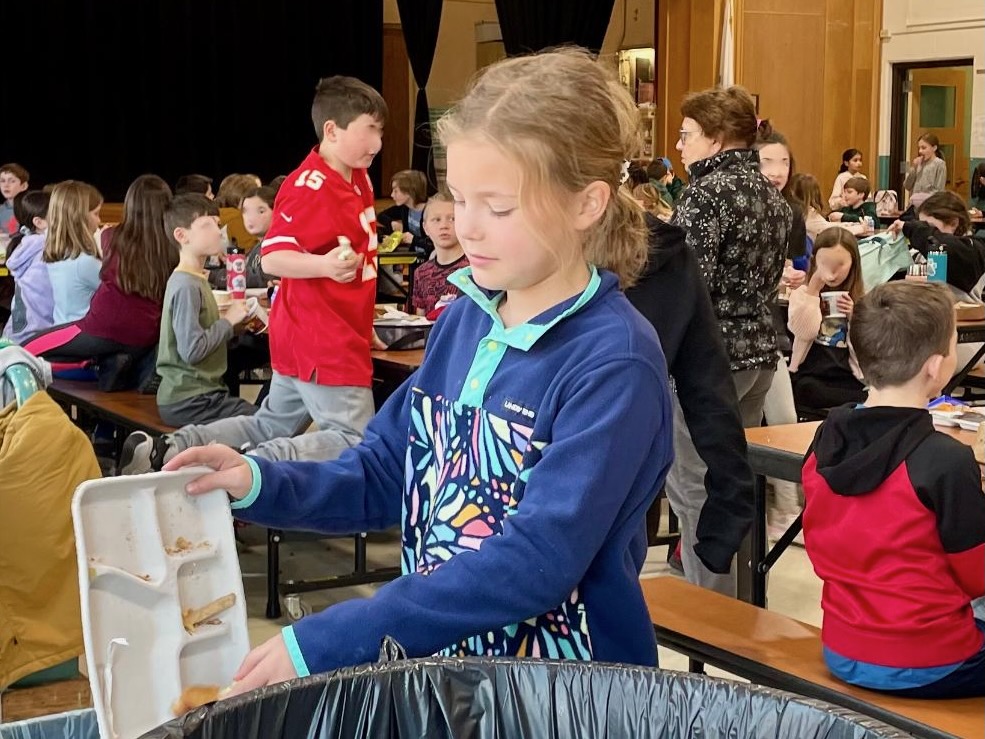Reading, MA — Food-waste composting is taking off in Reading! Besides Reading’s backyard composters, 427 households now subscribe to curbside pickup of food scraps via Black Earth Compost.
According to Reading Composts!, that’s an impressive rise from 75 households when the local volunteer group started in February 2020. “It shows a groundswell of understanding about the benefits of food-waste composting,” says Anne Mark, a Reading Composts! member. “MassDEP estimates that 25% of the trash stream is food waste, so diverting that weight can help municipal budgets. Plus, the food scraps get turned into nutrient-rich compost instead of being incinerated.”

“It also shows support from Town staff,” she continues. Subscriptions rose sharply when the DPW began offering a free Black Earth collection bin and set of liners with each sign-up. Information about food-waste composting and its benefits is prominent on the DPW’s web page.
A new incentive has appeared on Black Earth’s website: “The more households composting in Reading the lower the cost for all…[T]he price will drop by up to 6% when we reach 500 households.” Says Susan Bowe, also of Reading Composts!: “I’ve used Black Earth for nearly three years, and it’s super easy. The bin is really sturdy and lockable, and they accept lots besides just fruit and vegetables–like meat, cheese, and cooking oil. I like to make soups, saving bones from holiday meals to make flavorful stock, and it’s great to add the bones to the bin afterwards.”
Also generating enthusiasm is a food-waste-composting pilot at Birch Meadow Elementary School. Each Wednesday, 4th and 5th graders dispose of leftovers in a food-waste bin rather than throwing it in the trash. Food waste is collected by Black Earth, and next spring, bags of finished compost will be dug into the school’s garden—showing students the full circle of food-waste recycling.
Reading Composts! informs about the environmental and municipal benefits of food-waste composting and encourages fellow residents to compost via backyard bins or curbside service. Team members (Susan Bowe, Judy Coltman, Anne Mark, Simone Payment, and Allison Sillers) have staffed booths at recent Friends & Family Days and Reading Street Faires and welcome the community’s ideas and energy. To contact the team, e-mail uucrgreensanctuary@gmail.com.
